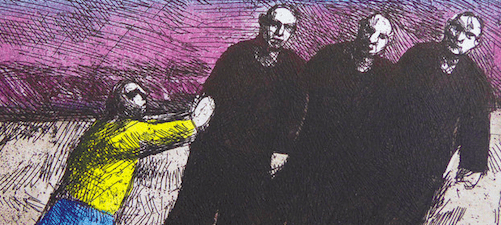"Crunch Time is an eye-opening book about the ways in which economic insecurity reverberates into family life. In gripping detail, Rao illuminates family dynamics of unemployed professional women and men. Her book shows the surprising ways that gender inequality persists. Highly recommended!"—Annette Lareau, University of Pennsylvania.
"In this deeply researched book, Rao takes us into the lives of professional couples dealing with unemployment and finds that even among these modern-day couples, traditional gender norms about breadwinning endure. A husband’s unemployment is experienced as a big problem that needs to be rectified, while a wife’s unemployment is experienced as an opportunity for her to spend more time at home—even when she is the primary earner. Rao’s insightful examination reveals that when job loss strikes, gender inequalities are reinforced by couples’ old-school responses to a new economy problem. This is an important book and a must-read."—Marianne Cooper, Stanford University, author of Cut Adrift: Families in Insecure Times
"Aliya Hamid Rao’s meticulously designed study takes us into the deeply uncertain lives of the affluent as they experience unemployment. Rao’s attention to the families profiled in this book is exacting and multifaceted, resisting any easy platitudes about privilege, unemployment, and especially gender. She illuminates how couples’ responses to unemployment are shaped by entrenched understandings of what husbands and wives ought to do. With analytical sophistication, she offers compelling explanations for variations in these gendered responses, expertly linking her findings to broader patterns of social inequalities. This book is a must-read for anyone interested in the interface of gender, the economy, and work-life balance."—Shelley Correll, Professor of Sociology at Stanford, and Director of Stanford VMWare Women's Leadership Innovation Lab
"Crunch Time is masterful. I picked up the book and could not put it down! Rao powerfully takes us into the private lives of middle-class American couples at their most vulnerable time: unemployment. A tale of two unemployments, Crunch Time details how unemployed men and women adopt the ideal job seeker norm in divergently gendered ways in the face of economic precarity. For unemployed men, seeking a new job becomes a full-time effort, while unemployed women retreat into the home and into intense carework as a vocation. A heart-wrenching, hopeful, and captivating book, this is a must-read. While ninety-two percent of the labor market will experience unemployment, Crunch Time forecasts us into an even bleaker future, as the rise of technology and artificial intelligence will surely threaten any form of economic security for all Americans."—Kimberly Kay Hoang, Associate Professor of Sociology, University of Chicago, and author of Dealing in Desire
"Dual career marriages signal increasing gender equality, but what happens when one member of the couple becomes unemployed? Aliya Rao’s surprising research finds that they revert to outdated gender norms. Unemployed husbands become diligent job seekers and unemployed wives become homemakers. Through intimate portraits of unemployed professionals, Rao deftly exposes how society pushes men and women into traditional gender roles."—Christine Williams, University of Texas at Austin
"This is a beautifully written, well-organized, and meticulously researched book that breaks new ground.”—Ofer Sharone, author of Flawed System/Flawed Self, Associate Professor of Sociology, University of Massachusetts Amherst
"The ideas are fresh, and an examination of unemployment and the different strategies between men and women and how their spouses react is welcome in the field."—Rosanna Hertz, Wellesley College, 1919 50th Reunion Professor of Sociology and Women's and Gender Studies



